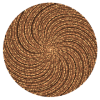

I'm a neurophysiologist interested in computational approaches to modeling and data analysis. I work at West Virginia University's Rockefeller Neuroscience Institute, but all opinions are my own, and probably confused.
This profile is from a federated server and may be incomplete. Browse more on the original instance.